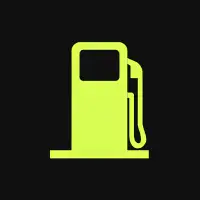Latest Version
6
April 30, 2025
Lookup Service
Auto & Vehicles
Android
1
Free
com.vin.number.lookup
Report a Problem
More About VIN Number Check Lookup Search
A VIN number search can provide a wealth of important information about a vehicle's history and condition. It can reveal if the car has been involved in any accidents and the severity of the damage. Additionally, it can identify whether the vehicle has been listed in salvage auctions or reported as stolen, giving potential buyers a clearer picture of its background. The search results may also include details about the vehicle's standard equipment, such as features and specifications that come with the model. Furthermore, users can access the vehicle’s sales listing history, including past prices and images, which helps evaluate its market value and appeal.
With a VIN number lookup, individuals gain an advantage by not having to rely solely on the seller’s claims regarding the vehicle. This tool can uncover hidden issues or previous incidents that might not have been disclosed initially. Knowing these details allows buyers to negotiate better prices and terms of sale, reducing the risk of future surprises. For vehicle owners, running a VIN check can alert them to safety recalls, warranty statuses, and important repairs, ensuring the vehicle remains safe and properly maintained. It also helps owners monitor their car’s value over time, providing insights into the best time to sell or trade.
The VIN, or Vehicle Identification Number, is a unique 17-digit code assigned by car manufacturers to every new vehicle. It functions similarly to a social security number for humans, offering crucial information about the vehicle’s origin, production date, style, engine size, and trim level. Government agencies and private entities use this number to maintain detailed records of a vehicle's history, including registration, safety recalls, and accident reports. In some cases, a VIN lookup might even reveal the current owner of the vehicle, providing even more context for potential buyers or sellers.
Locating the VIN on most cars is straightforward: it is usually found on the front of the driver's side dashboard, visible through the windshield, or on a sticker on the edge of the driver’s door. For older vehicles, the VIN may be stamped on the engine block or the frame. If it cannot be found on the vehicle, it should be listed on official documents such as the registration, title, or insurance card. A VIN number search leverages extensive databases maintained by government and industry sources to deliver detailed information, empowering consumers with the knowledge needed to make informed decisions when purchasing or selling a vehicle.
Rate the App
User Reviews
Popular Apps
































